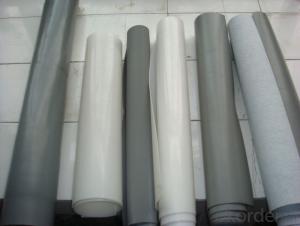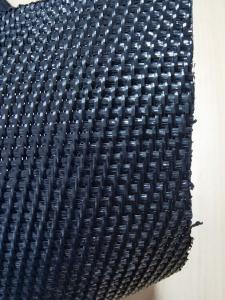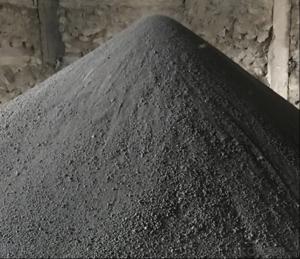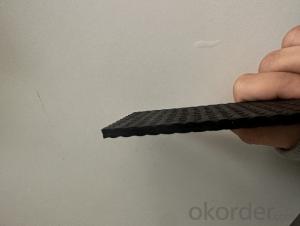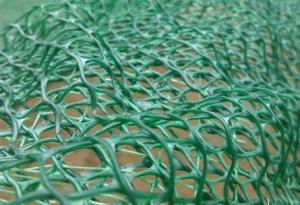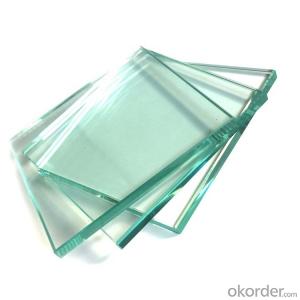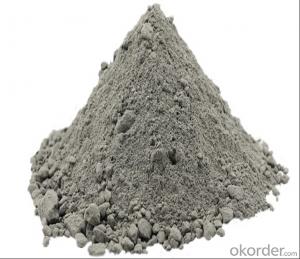PVC Roofing Waterproofing Membrane Rolls
- Loading Port:
- China main port
- Payment Terms:
- TT OR LC
- Min Order Qty:
- 5000 m²
- Supply Capability:
- 100000 m²/month
OKorder Service Pledge
OKorder Financial Service
You Might Also Like
Introduction
Polyvinyl Chloride (PVC) waterproof membrane is a new polymer waterproof membrane which is made from polyvinyl chloride resin, and mixed with plasticizer, filler, antioxygen, ultraviolet absorber and other auxiliaries.
Features
1) Excellent aging resistance. Service life of roofing material is over 20 years;
service life of underground material is over 50 years.
2) Root resistant penetration, specially used on planting roof.
3) Welding installation. Joints are solid and environment friendly, no pollution.
4) High tensile strength, good elongation and dimensional stability.
5) Good plasticity, easy and suitable for details installation.
6) Fireproof. Fire extinguished out of the ignition resource.
7) Surface is smooth, no fading and dirty resistant.
Specification
Length | 20m/roll or customized |
Width | 2.05m |
Thickness | 1.2mm; 1.5mm; 2.0mm |
Type | Homogeneous, Reinforced, Fabric back |
If Exposed | Exposed and Non-exposed |
Color | White, Grey or customized |
Applications
1) All kinds of roofs, such as steel structure roof, planted roof etc.
2) Underground engineering, such as building basement, subways, tunnels, air raid shelter, etc.
3) Other projects like artificial lake, dam, water reservoir, grain storehouse, etc.
RFQ
1. What is your MOQ?
--Our MOQ is 5000 m2
2. Can you provide sample?
--Yes, samples are in stock. we can offer free sample for you.
3. Do you offer OEM service?
--Yes, we can print customers’ logo on the packaging;
And the size and specification can be produced and design according to your demand.
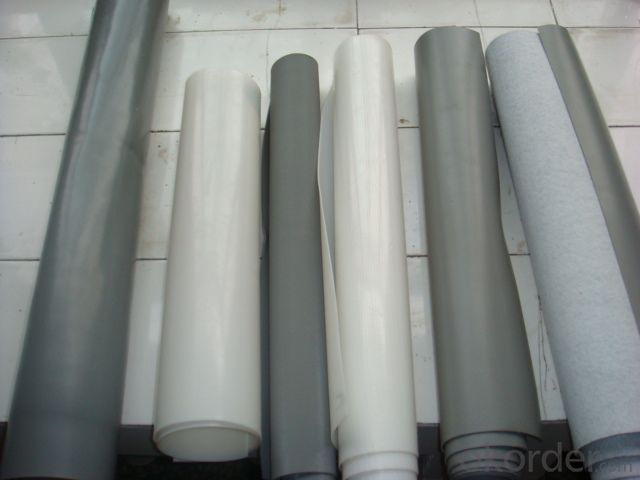
- Q:Can a waterproofing membrane be used on insulation surfaces?
- Yes, a waterproofing membrane can be used on insulation surfaces. It provides an additional layer of protection to prevent moisture infiltration and damage to the insulation material.
- Q:BS waterproofing membrane is modified? There are not a few thick drawings, how to do
- Do not indicate the thickness can contact the design unit, you can also judge according to the waterproof level
- Q:Can a waterproofing membrane be used for water tanks or reservoirs?
- Yes, a waterproofing membrane can be used for water tanks or reservoirs. Waterproofing membranes are designed to create a barrier that prevents water from penetrating through the surface. They are commonly used in various applications, including water tanks and reservoirs, to ensure that the stored water remains contained and does not leak or seep into the surrounding environment. The membrane is typically applied on the interior surface of the tank or reservoir, providing a durable and watertight seal. This helps to maintain the integrity of the water storage system and prevent any potential water loss or contamination. Additionally, waterproofing membranes can also protect the tank or reservoir from corrosion and structural damage caused by water exposure, extending their lifespan. Therefore, using a waterproofing membrane is an effective solution for ensuring the safety and functionality of water tanks or reservoirs.
- Q:Can a waterproofing membrane be used for a bridge deck construction?
- Yes, a waterproofing membrane can be used for bridge deck construction. A waterproofing membrane is a thin layer of material that is applied to the bridge deck to prevent water infiltration and protect the underlying structure from corrosion and deterioration. It is commonly used in bridge deck construction to ensure the longevity and durability of the bridge. The waterproofing membrane acts as a barrier against moisture, preventing water and other liquids from penetrating the bridge deck surface. This is particularly important for bridge decks, as they are constantly exposed to various weather conditions, including rain, snow, and ice, which can cause damage over time. In addition to its water resistance properties, a waterproofing membrane also provides protection against other elements such as UV rays and chemicals, which can degrade the bridge deck surface. By preventing water and other harmful substances from reaching the bridge deck, the waterproofing membrane helps to extend the lifespan of the bridge and reduce maintenance and repair costs. Furthermore, a waterproofing membrane can also improve the overall safety of the bridge by reducing the risk of structural damage caused by water infiltration. By keeping the bridge deck dry, the membrane helps to maintain the integrity of the bridge and prevents potential hazards such as slippery surfaces or weakened structural components. Overall, a waterproofing membrane is a crucial component in bridge deck construction as it ensures the long-term functionality and durability of the bridge. Its ability to provide protection against water infiltration, UV rays, and chemicals makes it an ideal choice for enhancing the performance and lifespan of a bridge.
- Q:Can a waterproofing membrane be used for a garden pond liner?
- Certainly! A garden pond liner can be made using a waterproofing membrane. The primary purpose of a waterproofing membrane is to stop water from seeping through it, which makes it a great option for constructing a garden pond with a tight seal. By using a waterproofing membrane, leaks can be effectively prevented, guaranteeing that the water remains within the pond. Moreover, waterproofing membranes are generally long-lasting and can withstand UV rays, chemicals, and punctures, all of which are essential considerations when choosing a material for a pond liner. Nonetheless, it is vital to ensure that the selected waterproofing membrane is specifically designed for pond use and is safe for aquatic life.
- Q:Can a waterproofing membrane be used for bridge abutments?
- Bridge abutments can be safeguarded using a waterproofing membrane. These membranes are commonly utilized in the construction industry to safeguard structures from moisture damage and prevent water infiltration. Due to their close proximity to water bodies and potential exposure to groundwater, bridge abutments are particularly at risk of water damage. The application of a waterproofing membrane on bridge abutments serves as a protective barrier against water penetration, effectively shielding the structure from potential harm. To ensure comprehensive protection, the membrane is typically installed on the abutment walls and extends below ground level. Waterproofing membranes are designed to be both durable and flexible, enabling them to withstand movement and settling that may occur in bridge abutments. Materials such as bitumen, PVC, or modified bitumen are commonly used to create these membranes, as they offer exceptional resistance to water and other environmental factors. By incorporating a waterproofing membrane on bridge abutments, engineers and contractors can guarantee the structure's longevity and safety. It effectively mitigates moisture-related issues, including concrete deterioration, corrosion of reinforcing steel, and the emergence of cracks and leaks. Furthermore, the membrane can serve as a vapor barrier, reducing the likelihood of condensation and moisture buildup within the abutments. In conclusion, waterproofing membranes provide an effective solution for safeguarding bridge abutments against water damage. They establish a dependable barrier against water penetration, ensuring the structural integrity and longevity of the bridge.
- Q:Can a waterproofing membrane be used on roofs?
- Yes, a waterproofing membrane can be used on roofs. Waterproofing membranes are often applied to roofs to provide a protective barrier against water penetration and ensure the roof remains watertight.
- Q:Can a waterproofing membrane be used for a roof?
- Yes, a waterproofing membrane can be used for a roof. Waterproofing membranes are specifically designed to provide a barrier against water penetration, making them an ideal choice for protecting roofs from leaks and water damage. They are durable, flexible, and can be applied to various types of roofs, including flat and sloped surfaces.
- Q:Can a waterproofing membrane be used on swimming pool decks?
- Yes, a waterproofing membrane can be used on swimming pool decks. It helps to prevent water damage and leakage, ensuring durability and longevity of the deck.
- Q:Can waterproofing membranes be used on concrete slabs?
- Concrete slabs can indeed utilize waterproofing membranes. In fact, it is a widely adopted technique to shield concrete slabs from water harm. The purpose of waterproofing membranes is to establish a barrier that halts water infiltration into the concrete surface. This becomes particularly crucial for regions susceptible to moisture, like basements, balconies, or swimming pools. Through the application of a waterproofing membrane, the concrete slab effectively safeguards itself against water infiltration, which might otherwise trigger cracks, erosion, or the growth of mold. Moreover, these membranes have the added benefit of bolstering the overall longevity and durability of the concrete slab.
1. Manufacturer Overview |
|
|---|---|
| Location | |
| Year Established | |
| Annual Output Value | |
| Main Markets | |
| Company Certifications | |
2. Manufacturer Certificates |
|
|---|---|
| a) Certification Name | |
| Range | |
| Reference | |
| Validity Period | |
3. Manufacturer Capability |
|
|---|---|
| a)Trade Capacity | |
| Nearest Port | |
| Export Percentage | |
| No.of Employees in Trade Department | |
| Language Spoken: | |
| b)Factory Information | |
| Factory Size: | |
| No. of Production Lines | |
| Contract Manufacturing | |
| Product Price Range | |
Send your message to us
PVC Roofing Waterproofing Membrane Rolls
- Loading Port:
- China main port
- Payment Terms:
- TT OR LC
- Min Order Qty:
- 5000 m²
- Supply Capability:
- 100000 m²/month
OKorder Service Pledge
OKorder Financial Service
Similar products
New products
Hot products
Hot Searches
Related keywords
